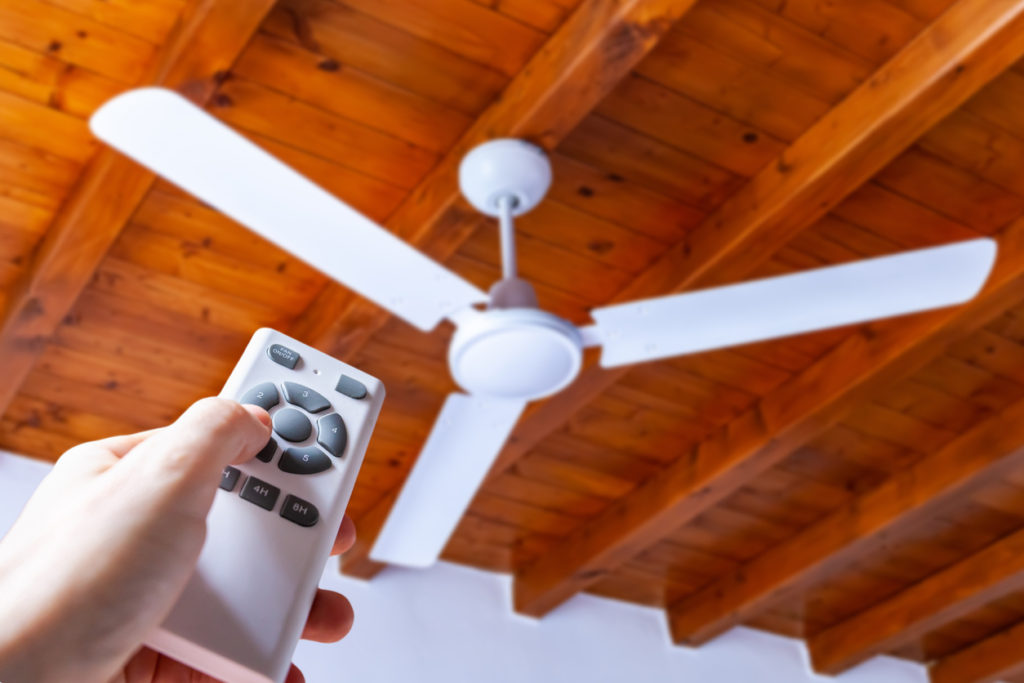If you’re like most people, you rely on your ceiling fan to deliver a welcome breeze during the summer months. But did you know that a Ceiling Fan can also make your home feel noticeably warmer once cooler weather rolls around? In fact, used correctly, this trusty, energy-efficient fixture can lower your energy bills all year long. Read on to learn how.
How Ceiling Fans Can Cut Energy Costs
Capable of spinning at a variety of speeds, ceiling fans circulate the air in a room, thereby affecting how warm or cool it feels without actually changing the temperature. Running a ceiling fan correctly, depending on the season, can lower your utility bills by allowing you to raise or lower the thermostat setting without a reduction in comfort.
Summer Breeze
During warm weather months, set the ceiling fan so that the blades turn counterclockwise. This produces a current that moves down and out and sends air back up along the walls. Since hot air naturally rises and cool air pools near the floor, the blades’ counterclockwise direction moves the cooler air to a level where you can feel it, creating a wind chill effect. But because a ceiling fan doesn’t actually lower the temperature, it’s best to turn it off if no one is present to enjoy its cooling effect.
Winter Warmth
It might seem counterintuitive but running the ceiling fan during the winter can help you feel warmer. Set to run clockwise – or in reverse – and at low speed, it creates an updraft that pulls cold air up to the ceiling and distributes the warm air supplied by a heating system, fireplace, or space heater. This prevents cold pockets from settling. Again, the temperature doesn’t change…the air simply feels warmer on your skin.
Pro Tips
- Ceiling fans should only be installed in rooms with at least 8-foot ceilings to prevent injuries.
- Make sure the blades hang 10 to 12 inches below the ceiling and between 7 and 9 feet from the floor.
- Most ceiling fans have a direction switch on the motor housing. If yours doesn’t, consult the manufacturer.
- Clean ceiling fan blades twice a year to remove dirt and dust. For kitchen ceiling fans, you may need to remove the blades and clean with soap and water to remove accumulated grease.
- As we mentioned above, since ceiling fans don’t change the temperature in a room, they should be turned off in unoccupied rooms.
Yet ceiling fans can only do so much. If your heating and cooling systems are not in top working order,
chances are your energy bills are going to rise. So, if it’s been a year or longer since your AC system, furnace or boiler has been cleaned and inspected, it’s time to contact Messmer Mechanical today.





